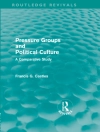‘The Evolving Presidency selects primary sources useful for tracing the development of the presidency and places them in a single reader, making it a vital resource for students and instructors.’
—Robert Robinson, California State University Fullerton
Remind your students that primary sources are an essential part of today′s information-rich age. In Michael Nelson’s Sixth Edition of The Evolving Presidency, 60 documents help to anchor the ever-changing presidency in historical context. Students encounter a range of documents—from speeches and debates to letters, landmark Supreme Court decisions, and even tweets—that demonstrate how the presidency is shaped through both word and deed. Every selection has its own headnote that is carefully crafted to convey the significance of the document during its own time and its lasting effects on the office of the presidency.
New to the Sixth Edition:
- This edition contains sixty documents, more than in any previous edition, including additions that reflect historically significant recent events, notably Donald Trump’s inaugural address and his employment of Twitter as a form of presidential communication.
- Two brand-new additions from the early days of Donald Trump’s presidency:
- The text of his pessimistic and populist inauguration speech, in which he promised a focus on ‘America first’;
- A compilation of 68 tweets from one week in July 2017, providing students with a context to analyze his unprecedented use of the social network to directly engage with citizens, colleagues in the government, and even other world leaders.
Jadual kandungan
Preface
Topical Guide to the Documents
Chapter 1: James Madison’s Notes of the Federal Convention (1787)
Chapter 2: The Constitution (1787)
Chapter 3: Anti-Federalist Essays: George Mason’s ‘Objections to This Constitution of Government’ and Cato’s ‘Letter No. 4’ (1787)
Chapter 4: The Federalist Papers, Nos. 69–73 (1788)
Chapter 5: George Washington’s First Inaugural Address (1789)
Chapter 6: James Madison’s Defense of the President’s Removal Power (1789)
Chapter 7: The Pacificus-Helvidius Letters (1793)
Chapter 8: George Washington’s Farewell Address (1796)
Chapter 9: Thomas Jefferson’s First Inaugural Address (1801)
Chapter 10: Thomas Jefferson’s Letter to the Vermont Legislature (1807)
Chapter 11: The Monroe Doctrine (1823)
Chapter 12: The Tennessee General Assembly’s Protest against the Caucus System (1823)
Chapter 13: Andrew Jackson’s First Message to Congress (1829)
Chapter 14: Andrew Jackson’s Veto of the Bank Bill (1832)
Chapter 15: Abraham Lincoln’s Message to Congress in Special Session (1861)
Chapter 16: Abraham Lincoln’s Letter to Albert G. Hodges (1864)
Chapter 17: The Gettysburg Address (1863)
Chapter 18: Abraham Lincoln’s Second Inaugural Address (1865)
Chapter 19: Ex parte Milligan (1866)
Chapter 20: Articles of Impeachment against Andrew Johnson (1868)
Chapter 21: The Pendleton Act (1883)
Chapter 22: Lord James Bryce′s ‘Why Great Men Are Not Chosen President’ (1888)
Chapter 23: Theodore Roosevelt’s (1913) and William Howard Taft’s Theories of Presidential Power (1916)
Chapter 24: Woodrow Wilson’s Fourteen Points (1918)
Chapter 25: Myers v. United States (1926)
Chapter 26: Franklin D. Roosevelt’s First Inaugural Address (1933)
Chapter 27: Humphrey’s Executor v. United States (1935)
Chapter 28: United States v. Curtiss-Wright Export Corp. (1936)
Chapter 29: Franklin D. Roosevelt’s “Court-Packing” Address (1937)
Chapter 30: Report of the Brownlow Committee (1937)
Chapter 31: Franklin D. Roosevelt’s Executive Order on Japanese-American Internment (1942)
Chapter 32: The Truman Doctrine (1947)
Chapter 33: Youngstown Sheet & Tube Co. v. Sawyer (1952)
Chapter 34: Dwight D. Eisenhower’s Little Rock Executive Order (1957)
Chapter 35: John F. Kennedy’s Inaugural Address (1961)
Chapter 36: The Cuban Missile Crisis: John F. Kennedy’s Letter to Soviet Premier Nikita Khrushchev (1962)
Chapter 37: Lyndon B. Johnson’s “Great Society” Speech (1964)
Chapter 38: Lyndon B. Johnson’s Gulf of Tonkin Message (1964)
Chapter 39: Lyndon B. Johnson’s “Equality of Result” Speech (1965)
Chapter 40: Richard Nixon’s China Trip Announcement (1971)
Chapter 41: The Mc Govern–Fraser Commission Report (1971)
Chapter 42: The War Powers Resolution (1973)
Chapter 43: Proposed Articles of Impeachment against Richard Nixon (1974)
Chapter 44: United States v. Nixon (1974)
Chapter 45: Gerald R. Ford’s Pardon of Richard Nixon (1974)
Chapter 46: Walter F. Mondale’s Memo to Jimmy Carter on the Role of the Vice President (1976)
Chapter 47: Jimmy Carter’s “Crisis of Confidence” Speech (1979)
Chapter 48: Ronald Reagan’s First Inaugural Address (1981)
Chapter 49: Clinton v. City of New York (1998)
Chapter 50: Articles of Impeachment against Bill Clinton (1998)
Chapter 51: Bush v. Gore (2000)
Chapter 52: George W. Bush’s War on Terrorism Address (2001)
Chapter 53: The Bush Doctrine (2002)
Chapter 54: George W. Bush’s Signing Statement for the Defense Supplemental Appropriations Act (2005)
Chapter 55: Hamdan v. Rumsfeld (2006)
Chapter 56: Barack Obama’s Campaign Speech on Race in America (2008)
Chapter 57: Barack Obama’s Health Care Address (2009)
Chapter 58: National Labor Relations Board v. Noel Canning et al. (2014)
Chapter 59: Donald Trump’s Inaugural Address (2017)
Chapter 60: Donald Trump’s Tweets (2017)
Mengenai Pengarang
Michael Nelson is Fulmer Professor of Political Science at Rhodes College and a senior fellow at the University of Virginia’s Miller Center. A former editor of the Washington Monthly, his most recent books include Trump’s First Year (2018); The Elections of 2016 (2018); The Evolving Presidency: Landmark Documents (2019); The American Presidency: Origins and Development (with Sidney M. Milkis, 2011); and Governing at Home: The White House and Domestic Policymaking (with Russell B. Riley, 2011). Nelson has contributed to numerous journals, including the Journal of Policy History, Journal of Politics, and Political Science Quarterly. He also has written multiple articles on subjects as varied as baseball, Frank Sinatra, and C. S. Lewis. More than fifty of his articles have been anthologized in works of political science, history, and English composition. His 2014 book, Resilient America: Electing Nixon, Channeling Dissent, and Dividing Government, won the American Political Science Association’s Richard E. Neustadt Award for best book on the presidency published that year; and his 2006 book with John Lyman Mason, How the South Joined the Gambling Nation, won the Southern Political Science Association’s V.O. Key Award.












